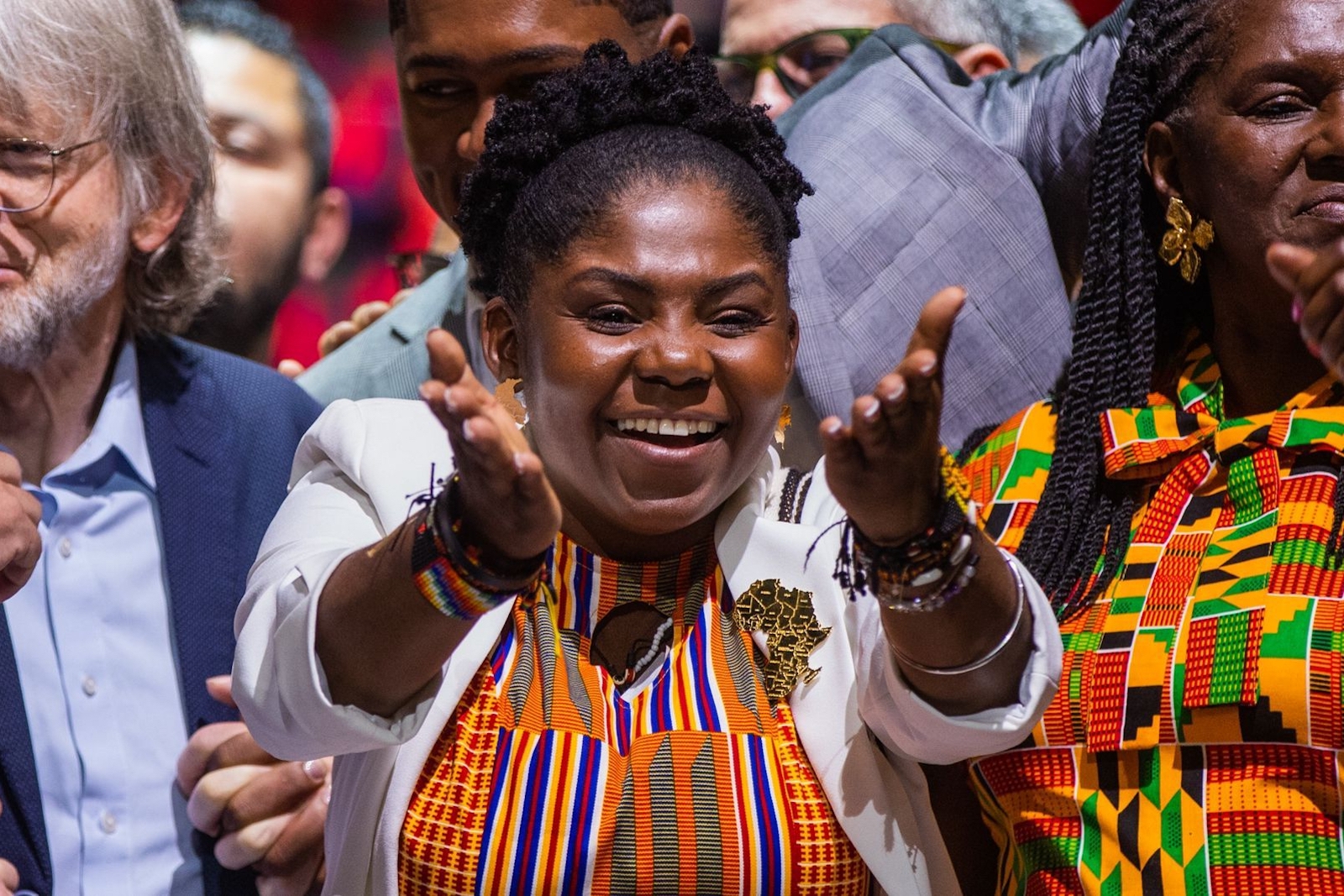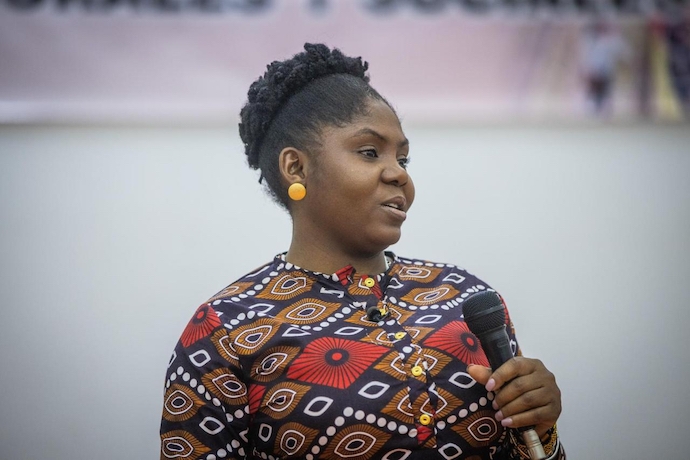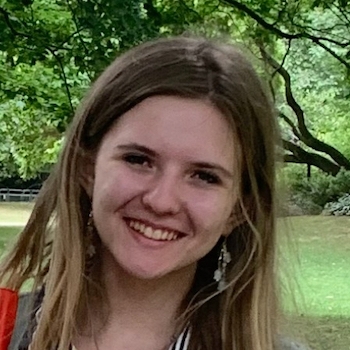
Colombians Want a Fresh Start. Is Francia Márquez Their Answer?
Latin America has the highest number of murders of human rights activists globally. For instance, Brazilian human rights activist Marielle Franco, who was known for championing social justice causes, was murdered in 2018. The bullets that killed her were shot by right-wing nationalists who disagreed with her activism. In Colombia, 138 human rights activists were killed in 2021, accounting for more than a third of all such killings worldwide.
Colombia’s women activists and politicians constantly receive backlash and death threats simply for their advocacy. Although Colombia has had a gender quota law since 2011, it only requires 30 percent of candidates to be women. Further, the law only applies in electoral districts with more than five seats. Colombia lags behind its peers in Latin America, 11 of which have regulations that call for equal proportions of women and men in politics. Female politicians in Colombia continue to face barriers, and if they make it to the legislature, they are usually already part of the elite, making these positions even more unreachable for average Colombians.
It doesn’t end there. Donors are less compelled to donate to female candidates. Female candidates in Colombia receive less campaign funding. Marginalized women like Francia Márquez usually aren’t in the limelight, but at a time when social movements are demanding racial equality across the continent, Black women are at last being given a voice to champion their causes.
In June, voters went to the polls and made a break with the status quo. For the first time in Colombia’s history, the left won the presidential election, and Francia Márquez became the first Afro-Latina vice president in South America. She is now the most powerful Afro-Latina in politics due to her position – a significant moment for a continent that is still battling systematic racism. “Thank you, Colombia. This fight did not begin with us, it began with our ancestors,” Marquez said on Twitter after winning the election. “Today with dignity and greatness we reap the fruits of that sowing.”
Both Márquez and President Gustavo Petro were inaugurated in a ceremony on August 7. Márquez will also be in charge of a new government department called the Ministry of Equality. The goal of this department is to develop economic and social programs for women, indigenous people, and Afro-Colombian groups.
Márquez was born in a small village to a single mother in the region of Cauca, which has been a center point in the 60-year-long armed conflict between the government and FARC, a Marxist–Leninist guerrilla group. Despite the 2016 peace accords between the FARC and the government, thousands of human rights activists have been murdered. 59 social leaders have already been murdered in 2022, and Márquez has already survived an assassination attempt.

In her own words, Márquez represents “the nobodies” of Colombia, meaning that she is not some sort of career politician seeking to gain power in a country where the majority live in rural areas. She is legally registered as an armed conflict victim and receives government benefits, something she is not ashamed of, and has discussed numerous times on the campaign trail. After becoming pregnant at the age of 16, Márquez was forced to take a job in a gold mine to support her family.
Her circumstances didn’t stop her from being active in her community. The same year, she found her passion for environmental activism when she came across news that a multinational corporation desired to extend a dam on the Ovejas river. This would have brought calamitous effects to the environment, as well as disturbed traditional Afro-Colombian agricultural practices.
Twenty years later, Márquez’s activism has not dwindled. She rebels against corporations desiring to uproot sustainable agricultural practices in Colombia and has even succeeded in some circumstances.
Márquez has demonstrated what it means to be a leader: a fierce protector of her citizens. At one point, she led 80 women in a 10-day, 350-mile march to the nation’s capital, Bogotá, in protest of illegal gold mining. Márquez won a Goldman Environmental Prize for addressing the issue in Colombia, where 80 percent of gold is mined unlawfully. Illegal gold mining wreaks havoc on local environments, dumping more than 30 tons of mercury into rivers and lakes in the Amazon every year and poisoning animals and people as far as 250 miles downstream. Márquez’s successful campaign led to the removal of all illegal miners and equipment from her community.
Márquez has shifted the conservative Colombian political atmosphere by diving deep into conversations surrounding racism and social inequality, issues that are often ignored. She proves to Colombians that she understands what it feels to be in their shoes, a quality about her that is one of the main causes of her growing popularity.
In March, two years after she announced her political ambitions, Márquez ran in the presidential primaries of the left-wing “Historic Pact” coalition. She placed third in the primaries and was eventually chosen by the winner, former Bogotá Mayor Gustavo Petro, to be his running mate. A victory for the left-wing is already remarkable for Colombia, which has been historically ruled by conservative elites.
According to Colombian census data, 6.2 percent of Colombia’s population is Afro-Colombian, but demographers say that number is “grossly underestimated.” Afro-Colombian communities face higher rates of poverty, violence, and land expropriation than their white counterparts.
Márquez understands this, and along with her running mate, she has continued to advocate for reforms that include economic access to land for Colombia’s poor and improved access to health care. Márquez knows what young Colombians truly want: reproductive rights, reparations, and climate justice.
She has received numerous death threats, and even a threatened sexual assault, but Márquez refuses to give up. For the first time in Colombia’s history, a Black woman is close to the top of the executive branch. As Colombia struggles to get out of the pandemic, Márquez is a role model for many Colombians. Her experiences of being low on the social ladder, and her analysis of social disparities in Colombia bring a breath of fresh air to Colombian politics. She has politicians in the country’s most powerful political circles biting their nails by discussing race and class.
However, some Colombians were worried about her lack of experience prior to the election. “She has never held political office,” said Sergio Guzman, director of Colombia Risk Analysis, a consulting firm, “There are a lot of questions as to whether Francia would be able to be commander-in-chief.” Guzman’s point of view is valid, but he overlooks what Márquez has already achieved in her community. Her passion is what brought her to the stage, and she’s not leaving any time soon. Colombians elected her to be vice president in the hopes that she’ll help Colombia become a country that Latin America looks to as an example of diversity, inclusion, and progressive policies.
As Márquez said once, “Part of what disturbs the elite is that a woman who was working in their homes today is going to be their leader.” Márquez’s win liberates decades of struggles for Afro-Colombian activists. Sometimes the best politicians are often the ones who are underdogs, and Colombians are yearning for their country to be free of the elites’ grasp. Will Márquez be able to demonstrate that she is the right match for Colombia? Only time will tell; however, her past activism reflects that she is more than able to step up to the job as vice president.
